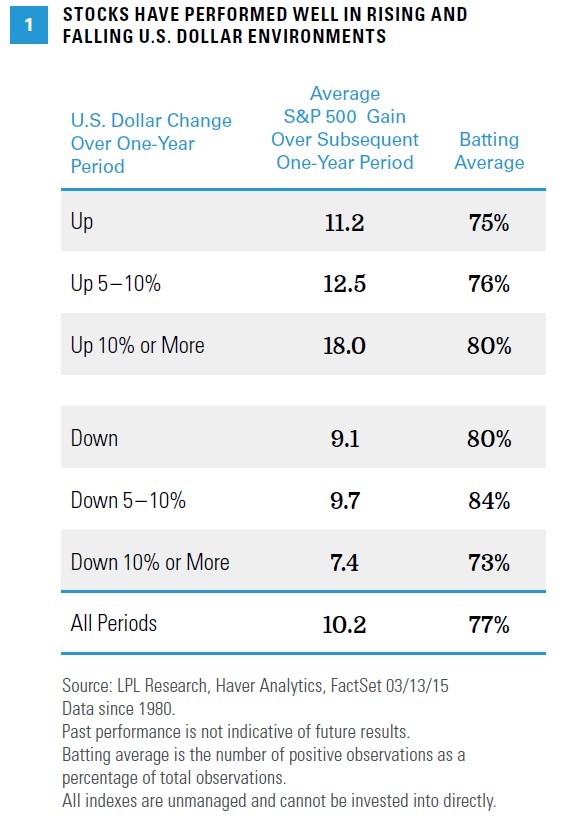Rising Foreign Stocks And a Rising Dollar Investment U
Post on: 11 Июль, 2015 No Comment

by Alexander Green. Chief Investment Strategist, The Oxford Club Monday, January 18, 2010 Market Trends
by Alexander Green. Chief Investment Strategist
Monday, January 18, 2010: Issue #1177
I’ve made no secret here recently that I believe the dollar is likely to soar against the euro, the pound and the yen this year. Yet this remains a distinct minority opinion.
Most analysts are focused on the huge U.S. budget and trade deficits, nearly $60 trillion in unfunded liabilities for Social Security, Medicare, Medicaid and the new prescription drug benefit, and the Federal Reserve’s penchant for conjuring trillions of dollars out of thin air to fix the economy.
These are indeed real and intractable problems that weigh on the dollar.
But people forget that currencies are measured in other currencies. And most of the world’s major economies have it worse than we do.
Why the Dollar Should Surge in 2010
In addition, the United States is likely to outperform these other economies in 2010 and the Fed is likely to start raising short-term rates toward the end of the year. That’s a catalyst for a surge in the dollar.
Despite the fundamentals, though, sentiment still weighs heavily against the dollar. In fact, there’s almost an air of disbelief when you talk to knowledgeable investors about the potential for a rising dollar. (These are the same smart guys, incidentally, who thought Internet stocks were a new paradigm and residential real estate values were a one-way street.)
And it’s this sentiment — as much as the fundamentals — that makes the case that the dollar should be a wonderful contrarian investment in 2010.
That means foreign currency-denominated bonds and bank accounts should be held for hedging purposes only, in my view.
However, I’ve also received letters from subscribers asking if they should bail out of their international stocks, too.
Absolutely not. Here’s why.
Head to Emerging Markets and Capitalize on a Falling Dollar
Foreign stocks can appreciate strongly enough to overcome a falling foreign currency. (Most emerging market stocks are denominated in undervalued currencies or ones that are pegged to the dollar.) And some foreign companies, especially exporters, actually benefit from a falling local currency.
However, make no mistake: If the greenback rises it will diminish total returns on international assets for those investors keeping score in dollars.
The exception will be those investors who hedge their foreign currency exposure with futures and options. For most investors, this alternative is too cumbersome and expensive. (After all, you have to hedge every currency you own for each foreign stock for each holding period.)
An International ETF That Offers Foreign Diversification Without Currency Risk
That’s why I’m happy to report that WisdomTree has recently introduced an international exchange-traded fund (ETF) that allows you to own foreign stocks with the foreign currency exposure totally hedged.
It’s called the WisdomTree International Hedged Equity Fund (Nasdaq: HEDJ ).
The fund invests in a trio of ETFs:
Of the roughly 250 international-stock ETFs on the market, this is the only one without foreign-currency exposure. And the total expense ratio for HEDJ is a reasonable 0.58%.
So if you want the diversification power of non-U.S. stock holdings — which you should — without the foreign currency risk, HEDJ is your natural choice.
And if the dollar rises, as I expect this year, this fund should end 2010 near the top of the heap for international fund performance.














